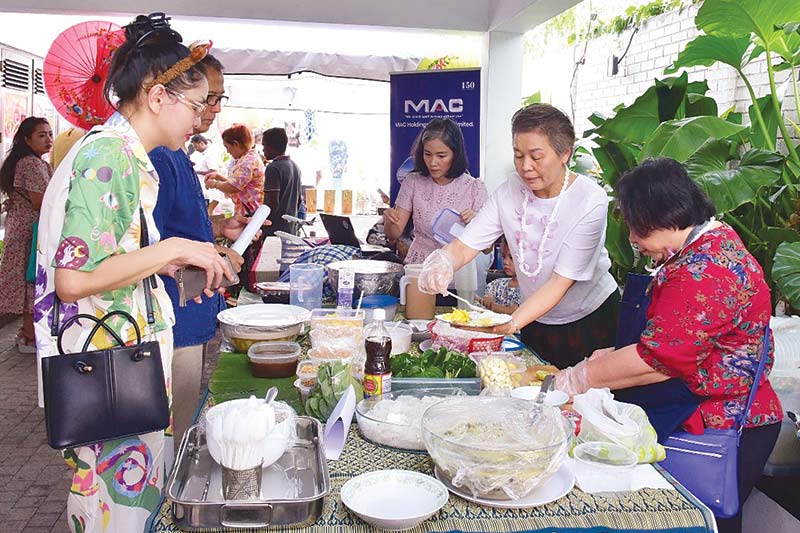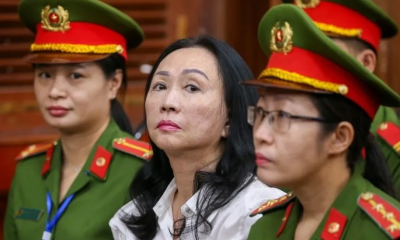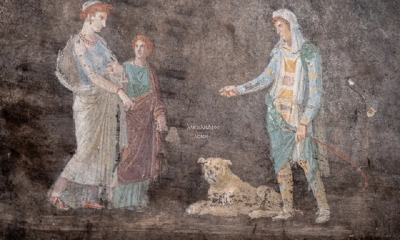Features
Some thoughts on Geneva
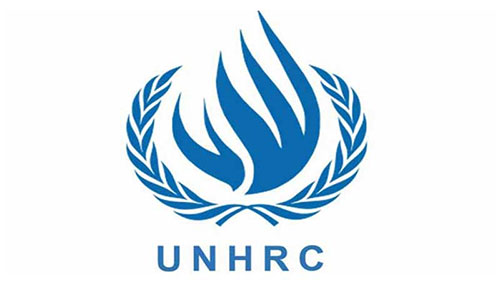
I was saddened by the events in Geneva having thought we were a popular country and our people well thought of internationally.To think that only 11 countries supported us in Geneva was indeed a cause for alarm and distress. Maybe the want us to take a step back and think of how to make Sri Lanka a better place.
Reams have been written about this resolution by erudite men and women. There is a common theme running through all of this: the UNHCR is against us; the western countries have ganged up against us. I beg to disagree.
Let us look at this resolution dispassionately. The high commisioner has made note of the very things we ourselves don’t like about recent happenings in our country. Did we want all Muslim Covid dead to be cremated? No. Once the WHO okay was given, we all agreed that religious customs may be followed.
Did we want our civil administration to be invaded by the military? No. Our civil adminitrtion is not the world’s best but we have no great issues over that. A military presence has not resulted in a marked improvement either. The public service meanders lazily as of yore.
As for killing of prisoners, what happened in Mahara is unfortunate. Surely there must be other ways of dealing with rioting prisoners than killing them? There are other pitfalls we could have avoided had we been less arrogant and a little more submissive. After all we are in UNHCR on our own volition
Our political leaders are very visible in the Buddhist scene, frequenting temples, prostrating themselves before Bodhi trees and participating in Buddhist rituals. All that is well and good. At the same time I wish they would embrace the Dasa Raja Dharma edict on governance of King Asoka. We will then have fewer problems with the likes of UNHRC.
Padmini Nanayakkara,
Colombo-3.
Features
Iranian retaliation compounds Mid-East tangle
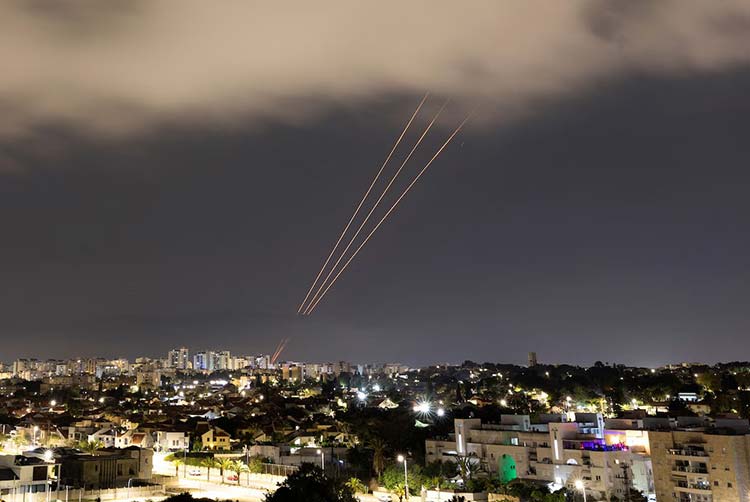
 The world’s bewilderment over escalating tensions in the Middle East was further aggravated when Iran unleashed an astonishing number of drones and missiles into Israeli territory over the last weekend. The retaliation by Iran has taken the international community by storm but where does the world go from here in terms of conflict resolution and peace-building in the war-ravaged Middle East?
The world’s bewilderment over escalating tensions in the Middle East was further aggravated when Iran unleashed an astonishing number of drones and missiles into Israeli territory over the last weekend. The retaliation by Iran has taken the international community by storm but where does the world go from here in terms of conflict resolution and peace-building in the war-ravaged Middle East?
Humanity is living in a most dangerous moment and instinctive and mindless revenge attacks by antagonists are not going to elicit a positive answer to the above question, which should be the primary preoccupation of all thinking persons. It is most apt right now to reflect on the disastrous impact that retaliatory, revenge strikes among warring parties could have on their clarity of thinking and rationality.
Antagonists who see armed confrontation as an effective means of delivering them from complex, bilateral and international hostilities and tensions would do well to revisit the World Wars of the century past and recall to mind how purely emotional reactions by powers to actions by their rivals, plunged the world into ineffable murderous violence that sent millions of people to their graves.
The World Wars establish very clearly that rationality on the part of conflicting powers cannot be taken for granted by the world. In fact, rationality is a principal casualty in war.
Israel, at the moment, has chosen not to react impulsively to the Iranian revenge strike and sensible sections the world over are likely to hope that this stance by Israel would prove enduring. In all probability, rational sections would be wishing that both sides would give dialogue and negotiations a try.
The world has proof that emotion rather than rationality guides national leaders at a time of war in the reported response of the Chancellor of the German Empire in 1909, T.T. F. Alfred von Bethmann Hollweg, to the question, ‘How did World War 1 begin?’ He apparently said despairingly: ‘Oh, if I only knew.’
Moreover, some historians see the outbreak of World War 1, which claimed millions of lives as ‘A tragedy of miscalculations’, brought about by the emotionality of the relevant world powers. However, the world paid very dearly for such muddle-headedness, as is known.
These peeks into history, it is hoped, would enable the principal antagonists in the Middle East of today and their allies to pause awhile and reflect on the possible grave consequences of their acts of commission and omission.
At the moment, emotion rather rationality seems to be ruling both Israel and Iran. For example, what prompted Israel to attack an Iranian diplomatic institution in Damascus on April 1st? On the other hand, did not the Iranian authorities ponder long and deep before raining drones and missiles on Israel a week later? Such precipitous actions on the part of both players are ample proof that emotion rather rationality is egging them on.
While it is hoped that diplomacy would be given a chance in the Middle East, past experience establishes that Israel is unlikely to refrain for long from unleashing retaliatory strikes against Iran in the days ahead.
If such strikes come to pass, the Middle East cannot be prevented from collapsing into a state of war on account of the possibility of the conflict dragging in the respective allies of the principal warring parties. But as matters stand, a region-wide war is not immediately possible considering that Iran did not have the unanimous backing of its immediate neighbours when it launched last weekend’s retaliatory strikes against Israel. Jordan, for instance, stood shoulder-to-shoulder with the US and the UK in defusing Iranian missiles.
Much will depend on whether the US could prove a moderating influence and prevail on Israel to refrain from further provoking Iran. Israel should be compelled by the US to focus on the ‘bigger picture’ and ascertain the consequences that its military actions could have for regional stability and eventually international peace and security.
While the US could be expected to rein-in Israel in the short term, there is no counterpart to the US among Iran’s closest allies at present. If Iran insists on following an adversarial course of action against Israel and those states in the region that it sees as hostile to it, there would be no external restraining arm on it. In such an event, the Middle East could be taken to the brink of an all-out war.
However, in the case of a regional war, the balance of power would be more in favour of Israel in view of the fact that it would be having the backing of the US and by implication, almost the entirety of the NATO bloc.
On the other hand, although Russia and China are seen as Iran’s allies, it is unlikely that they would staunchly back Iran in a regional military conflict, considering that Russia and China could stand to lose much rather gain anything substantial by throwing their weight behind Iran.
For instance, there would be much to lose in economic terms for Russia and China in a confrontation of this kind. Iranian arms and oil, for example, would be minor gains for Russia and China when considering the economic growth prospects they would be compelled to forego in the case of war and instability.
The big powers, therefore, would do well to sue for peace in the Middle East. Peace would serve the best interests of the powers concerned as matters stand. This is a time of severe test of the big powers’ diplomatic skills.
However, the road ahead is bound to be hazardous. With Rightist, conservative governments wielding power in both Israel and Iran, peace-making is bound to be exceptionally grueling. There is little doubt that both regimes would be making costly compromises with the Hawks in their countries.
Such Hawkish sections would be calling raucously for war and the need for political survival is bound to compel the regimes concerned to sue for war rather than peace. But of the two sides, Israel could be expected to be more restrained than Iran. This is on account of the fact that the Iranian regime depends considerably on conjuring-up the existence of external and internal enemies for the purposes of rallying its domestic support base behind it and remaining intact. Thus, while Israel is Iran’s foremost international enemy, domestic democratic forces are quite a worry for Iran’s religious fundamentalist rulers.
The same strictures apply to Israel to a great extent but the degree of its dependence on the West is such that the latter could be expected to keep Israel in check in at least the short term.
Right now, it is only enlightened diplomacy by the world community, ideally under the UN, that could bring some respite for the world from its Middle East-based anxieties. The time could not be riper for rational international dialogue.
Features
Added attraction to Avurudu activities

 The Songkran Festival and Thai Market, held in Colombo, on Sunday, 07th April, turned out to an event full of excitement. The Thai community, in Sri Lankan, made their presence felt in a big way, and they were all there enjoying the activities that were laid out for them.
The Songkran Festival and Thai Market, held in Colombo, on Sunday, 07th April, turned out to an event full of excitement. The Thai community, in Sri Lankan, made their presence felt in a big way, and they were all there enjoying the activities that were laid out for them.
For the Sri Lankans, it was a novel happening…shopping around for Thai products, seeing Thai cultural dancers in action, as well as the water pouring ceremony where the Thai community sprinkled scented water on the statue of the Buddha, and also on the hands of the revered elderly to ask for their blessings,
Paitoon Mahapannaporn, Ambassador of Thailand to Sri Lanka, and other Embassy officials, joined in the celebrations held at Siam Nivasa, the premises of the Royal Thai Embassy in Colombo.
In Thailand, Songkran refers to the sun’s annual passing into the Aries constellation, the first sign of the Zodiac, which marks the traditional start of the New Year.
Occurring in mid-April (13-15 April) after the rice harvest, it is a time when people reunite with their families and pay their respects to older adults, ancestors and sacred Buddha images.

Paitoon Mahapannap orn, Ambassador of Thailand to Sri Lanka, sprinkling scented water on the statue of the Buddha
Pouring water is a significant act during Songkran, symbolizing cleansing, reverence and good fortune. Other activities include bathing important Buddha images, splashing water on family and friends, folk plays, games, music and feasting.
The tradition is passed on through participation in the festivities. Parents transmit the tradition to their children orally through regular social and family interactions.
Educational institutes, government agencies, the media and Thai astrologers also play an important role in preserving, promoting and transmitting the astrological knowledge and wisdom related to Songkran.
Songkran promotes community cooperation, unity and forgiveness and it is viewed as a time to symbolically wash away misfortunes, pray for prosperity for the coming year, reunite with family members, and honour ancestors and older adults. Furthermore, by emphasizing the importance of older adults and of family, Songkran helps to combat loneliness and social isolation.
Perhaps next year this festival will be held on a larger scale, in Colombo, where Sri Lankans can experience the real meaning of Songkran,
In the meanwhile, the Songkran Festival, the cherished tradition in Thailand, has been officially recognized by the United Nations Educational, Scientific and Cultural Organization (UNESCO) as an intangible cultural heritage.
Fashion
Face Mask with Papaya and Honey

 You need to keep your face looking good at all times and the best way to do it is to make use of homemade remedies.This week let’s do it with Papaya and Honey.
You need to keep your face looking good at all times and the best way to do it is to make use of homemade remedies.This week let’s do it with Papaya and Honey.
You need to mash ½ cup of ripe papaya until it becomes a smooth paste.Next, add 01 tablespoon of honey into the papaya paste and make sure that the honey is well incorporated.
Before applying this mask, cleanse your face. You need to start with clean, dry skin. Use your regular cleanser to remove any makeup, dirt, or oils.Now, using clean fingers, or a mask applicator, apply the mixture evenly to your face and neck. Avoid the eye area.
Gently massage the mask into your skin, using circular motions. This helps the enzymes in the papaya to penetrate.Once you have done the needful, relax and let the mask sit on your skin for 15-20 minutes. This allows the ingredients to work their magic.
After 15-20 minutes, rinse the mask off with cool water. You can also use a soft washcloth to gently remove the mask in circular motions.Pat your skin dry with a clean towel. Follow up with your favourite moisturizer to lock in hydration.
Remember, the natural enzymes in papaya gently exfoliate the skin, removing dead skin cells and revealing brighter, smoother skin underneath. This can improve skin texture and tone.Papaya is also rich in vitamin C and alpha hydroxy acids, which help to brighten the skin and reduce the appearance of dark spots and hyperpigmentation.
Honey is a natural humectant, meaning it attracts and retains moisture in the skin. This mask combination helps to hydrate and nourish the skin, leaving it soft and supple.
Both papaya and honey are loaded with antioxidants that protect the skin from free radical damage, which can contribute to premature aging.The enzymes and properties in papaya and honey have a soothing effect on the skin, making this mask suitable for sensitive or irritated skin types.Regular use of this mask can result in a natural, healthy glow as it improves skin health and vitality.
-

 News5 days ago
News5 days agoSinhala and Tamil New Year auspicious times
-

 Business7 days ago
Business7 days agoVietnamese billionaire Truong My Lan sentenced to death for $44bn fraud
-

 Business6 days ago
Business6 days agoThe $2bn dirty-money case that rocked Singapore
-

 Features7 days ago
Features7 days agoBreathtaking new paintings found at ancient city of Pompeii
-

 Foreign News6 days ago
Foreign News6 days agoSingapore tightens rules for expat workers with an eye on local discontent
-

 Business1 day ago
Business1 day agoSOEs seen as failing SL’s ordinary citizens
-

 News5 days ago
News5 days ago123rd Birth anniversary of Dr S A Wickramasinghe commemorated
-

 News2 days ago
News2 days agoSay no to NEPF! Say no to abolishing free education!



